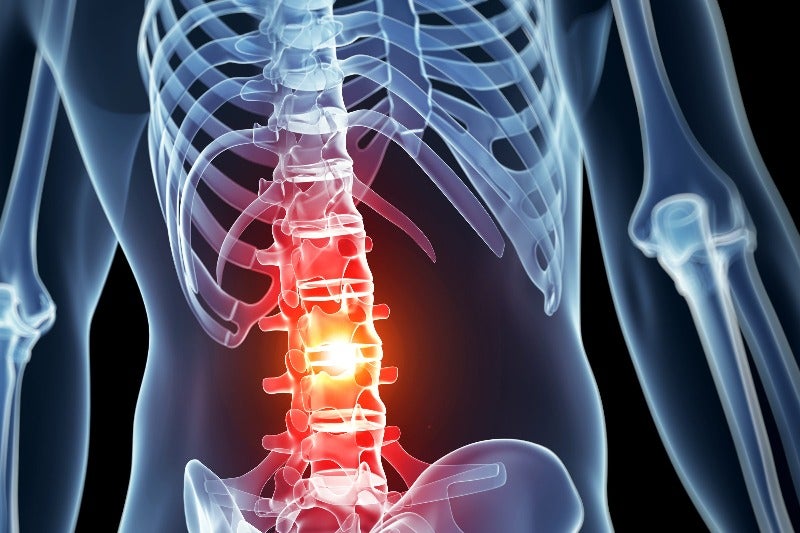
Researchers at the University of Michigan in the US have developed a nanoparticles injection to prevent the immune system from overreacting to trauma in order to potentially prevent paralysis from certain spinal cord injuries.
Calling the injection an ‘EpiPen’ for central nervous system trauma, the team said that nanoparticles interrupt and redirect immune cells away from the injury. In addition, cells reaching the spinal cord are modified to be more pro-regenerative.

Discover B2B Marketing That Performs
Combine business intelligence and editorial excellence to reach engaged professionals across 36 leading media platforms.
Testing in mice showed that the injection boosts healing via reprogramming of aggressive immune cells.
In case of a spinal injury, the body’s immune response results in immune cells producing high inflammation for the neural tissues. This causes neuron death, damage to the insulating sheaths surrounding the nerve fibres and results in a scar that blocks nerve cell regeneration in the spinal cord.
In turn, the mechanism leads to loss of function below the injury level, including paralysis and loss of sensation.
With the new injection, nanoparticles reprogramme the physical characteristics of immune cells. The treatment does not contain any drugs.

US Tariffs are shifting - will you react or anticipate?
Don’t let policy changes catch you off guard. Stay proactive with real-time data and expert analysis.
By GlobalDataIt is expected that the non-pharmaceutical approach will prevent unwanted side-effects.
In addition, fewer immune cells at the trauma location would result in less inflammation and tissue deterioration.
Researchers added that immune cells that reach the injury are less inflammatory and could support tissues that are trying to regenerate.
Along with spinal cord injuries, this approach is expected to enable new therapeutic strategies for patients with various inflammatory diseases.
University of Michigan biomedical engineering professor Lonnie Shea said: “The immune system underlies autoimmune disease, cancer, trauma, regeneration, nearly every major disease.
“Tools that can target immune cells and reprogramme them to a desired response have numerous opportunities for treating or managing disease.”
Research has been published in the Proceedings of the National Academy of Sciences journal.




